This review for Apple TV+’s The Crowded Room was written during the 2023 WGA and SAG-AFTRA strikes. Without the labor of the writers and actors who are currently on strike, tv series like this one would not be possible, and Autostraddle is grateful for the artists who do this work. This review contains mild spoilers.
The Crowded Room is not your typical crime drama. It blurs the lines of queerness while also being explicitly queer. It plays around with timelines and perceptions of reality in a way that is really interesting, and while I personally would have watched 10 hours of Tom “Mr. Zendaya” Holland and Amanda Seyfried talking alone in a room, it keeps the show engaging throughout. Instead of being a little more…straightforward and Mindhunter-esque, it feels a bit like being given a handful of puzzle pieces at a time, with no idea of when you have all the pieces or what the final picture will be.
Set largely in the late 70s, the show follows psychologist Rya Goodwin on her journey to find out the mystery of a client named Danny Sullivan. He is being accused of crimes he insists someone else committed, but seems too earnest to be anything but truthful, and Rya is determined to get to the bottom of it. Partially to try to earn tenure at her job, but also because the more she talks to Danny, the more curious she is about his case.
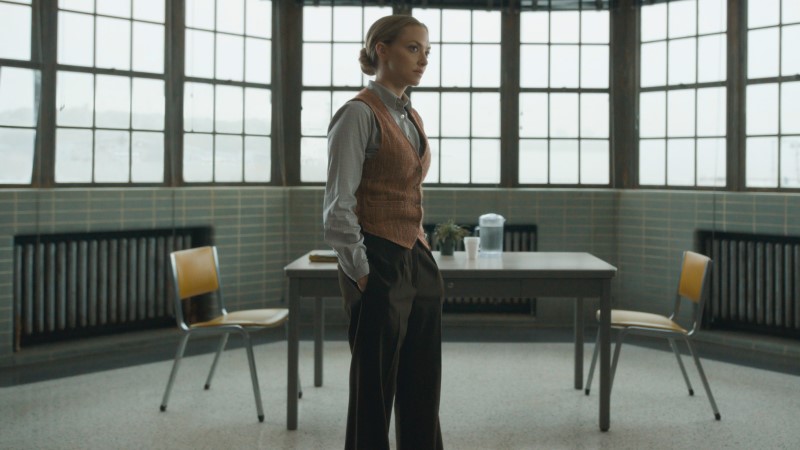
Now here is where I’m going to warn you once again about spoilers. There’s a twist to this show that I have to reveal in order to talk about the queerness of The Crowded Room. This is your point of no return.
Okay so maybe you, too, didn’t think of this as a twist, but I imagine to someone who was paying slightly less attention, it might have been a biggie. Unfortunately, I knew what was coming in the first moments of the first episode when I saw the text on the screen saying it was based on the book “The Minds of Billy Milligan.” That has Dissociative Identity Disorder written all over it. That said, it didn’t really help me know what was going on, exactly. The game of “real or not real” is hard to play when half of the story you’re getting is from an unreliable narrator.
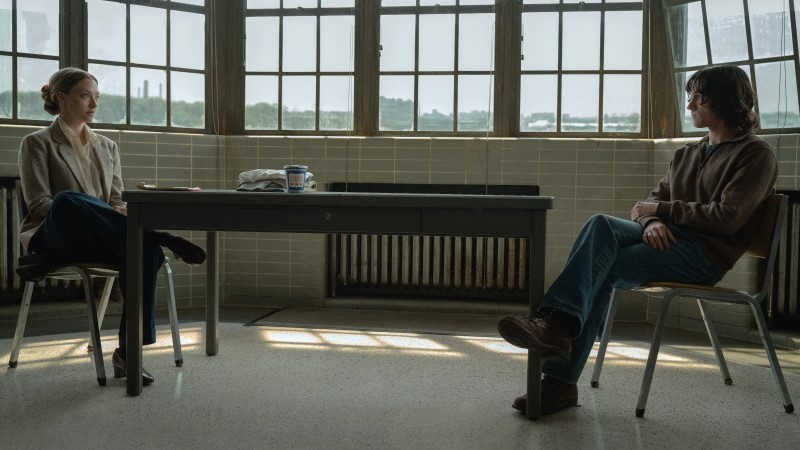
It also means something that seemed queer on a first pass ended up being a little less queer as truths were revealed, but also the opposite was true about another situation.
When we first meet Arianna, played by Sasha Lane, she seems like nothing more than bold and bisexual bestie. She kisses Annabelle, the girl Danny likes, and talks to Danny about how she likes kissing girls and boys, and goes out to a club and hooks up with a guy in the bathroom.
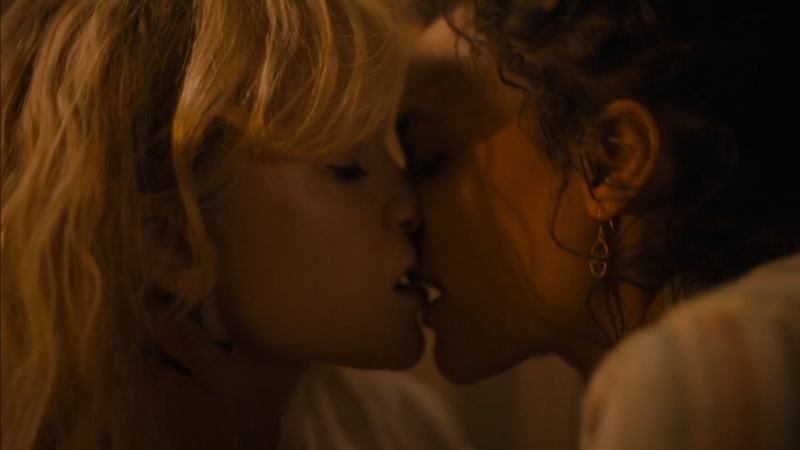
Eventually we learn that Arianna is one of Danny’s alters. I’m not sure why a skinny white boy feels like his sexuality is represented by a woman of color, but it’s true in real life that people with DID often have alters who look nothing like their bodies when they think about what they look like. The Crowded Room definitely dramatizes this, but it makes for effective storytelling.
While it’s frustrating that one of the only women of color who makes a regular appearance on the show is technically not real, it does mean that Danny was having a proper conversation about his own sexuality with himself. We’ve all had it with ourselves, “So, you like kissing girls?” Danny’s just felt more like a conversation to him than probably ours did. It also leads to some really lovely conversations between a man named Angelo who was sort of dating Arianna. He calls Danny Arianna at first, before realizing she wasn’t who he was talking to. Even though the public didn’t have the language to discuss DID yet, the now outdated term “multiple personality disorder” just coming to public knowledge. Angelo just accepted Arianna for who she was when a Tom-Holland-shaped human called herself Arianna. He also accepted that who he is talking to in that moment, despite still being Tom Holland shaped, isn’t his Arianna. It’s really touching.
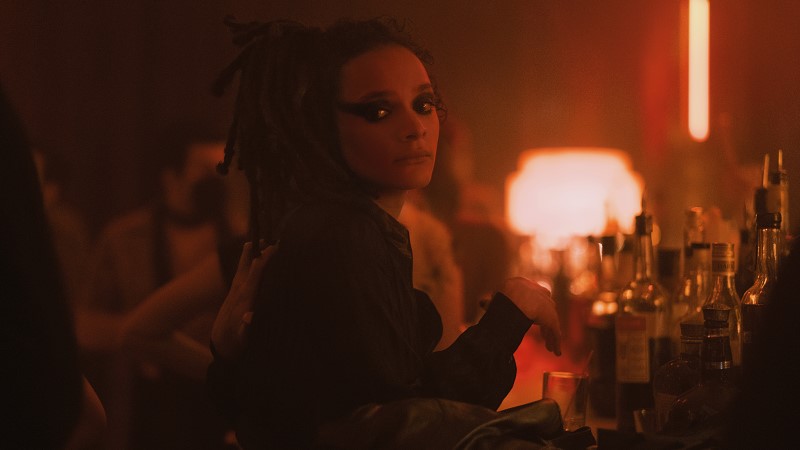
It does, however, blur the lines of queerness. It’s hard to say if Danny is queer, even though Arianna is bisexual. Danny himself seemed mostly interested in Annabelle, but Arianna enjoyed Anabelle and Antonio. But Danny’s alters also represent parts of himself he can’t quite emotionally handle accessing directly, so maybe Arianna’s queerness is his own. It’s hard to say.
The real story this is based on is…much darker than Danny’s. The real Billy Milligan committed much worse crimes, and I’m glad the story stayed away from that, because an important aspect of this show, in my opinion, is that Danny isn’t a bad person. The crimes his alters committed were either victimless or in self-defense. Danny had to be undeniably guilty, and also completely forgivable for this story to work. The question has to be “Should Danny be punished for something one of his alters did,” and you have to feel torn about it. If Danny or his alters had done any of the real Billy Milligan’s crimes, none of that would have been possible. The truth is, not everyone with DID is out there doing crime, and in fact, as the show points out, DID is triggered by abuse and trauma, most often child abuse and trauma. So to portray any of Danny’s alters as an irredeemable villain would have told an entirely different story.
For some reason, at one point during quarantine, I ended up on DID TikTok (I think because I was just deep in mental health tiktok and was learning words for things I was experiencing, one of which is dissociation) and there are some really informative creators on there talking about how DID affects their lives, what they work on in therapy, and sometimes just cute introductions to their alters. I highly recommend checking that out if you were interested in the topics presented by this show. There’s more to DID systems than deep questions about how to hold them accountable for crimes. Sometimes it’s just one alter fronting and wondering who the hell put stickers all over their face.
Since I don’t have DID, I can’t say whether or not this show did a good job portraying it accurately, but from where I stand, it did seem deeply respectful. Rya fights to explain it to people who try to brush Danny off as being a liar or calling him “crazy.” She has such empathy for Danny, and shows him such kindness throughout, even when one of his alters is giving her a hard time.
Rya also shows a lot of patience with Danny’s mother, who is played by Emmy Rossum, on whom I’ve had a crush since I saw The Phantom of the Opera movie in 2004. (It’s not as weird as you think that Emmy Rossum is playing Tom Holland’s mother even though in real life they’re 9 years apart. See above statement about time being non-linear.) Rya recognizes her as a victim of abuse herself, and tries to get her to do the right thing by Danny.
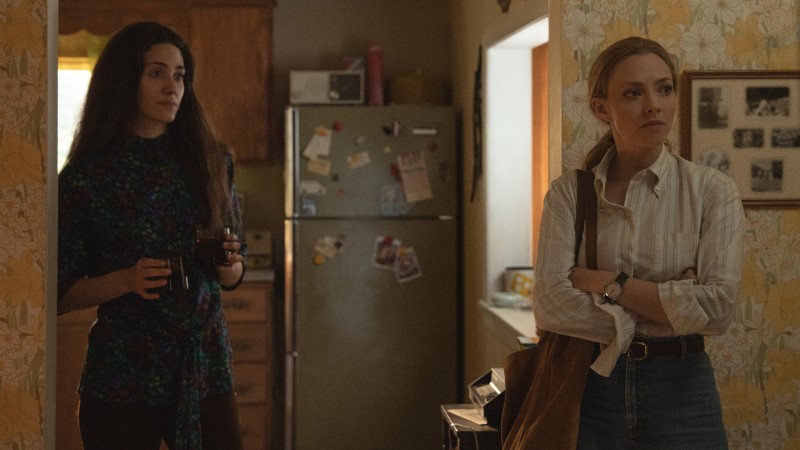
Overall, I enjoyed the puzzle this show presented. It was hard to watch at times, and tackles really dark themes, but the acting is so great that I found myself fully enchanted. Like Rya, I wanted to hear more of Danny’s story, wanted to help him put the pieces together so we could look at the whole picture together.



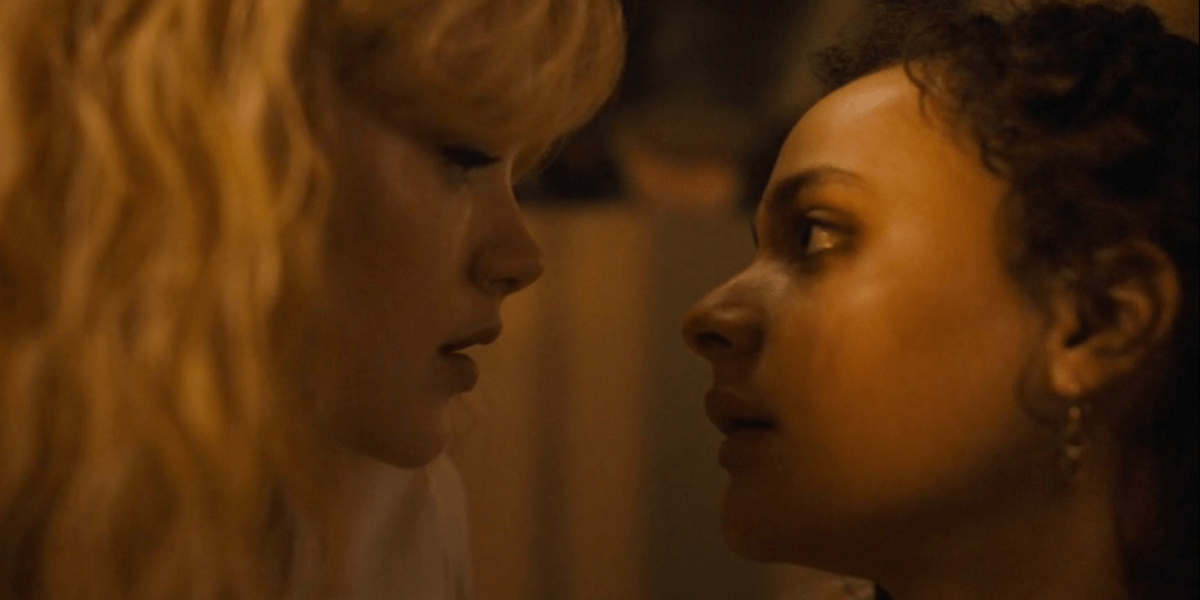




Comments
I second all your feelings. Just watched the finale this evening. Truly incredible storytelling. And here I almost didn’t watch it because I lost any interest with the non-stop trailers (on The CW too, was weird). So many great performances but the character of Rya, Seyfried, was a real stand out for me. I wanted to get to know her more as well. Tom Holland’s face at times broke my heart as Danny. The scene described above with Jerome was so tender and heartbreaking.
I don’t know much about DID or the story the show was based off but the title also did give away a hint. That fine line between what was a scene with an alter after the reveal held for the long game. Even at the end very end with Rya and Danny, the lighting, made me question what I was seeing.
No AI could write this. There would always be some emotionless tell.